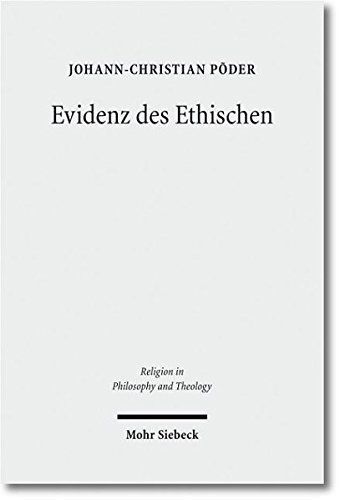
Evidenz des Ethischen die Fundamentalethik Knud E. Løgstrups
English summary: The ethics of Knud E. Logstrup (1905-1981), the Danish theologian and philosopher, are among the most important ethical approaches of the 20th century. In the manner of H. Jonas and E. Levinas, his universalistic justification of ethics is embedded in the horizon of the phenomenology of Husserl and Heidegger. Johann-Christian Poder explains the basic elements of Logstrup's ethical thinking and shows that Logstrup assumes that there is evidence of the ethical which constitutes humankind's relationship to himself and the world. For him, the ethical is part of the ethical-ontological structure of human beings as homo moralis. From a theological perspective, this is the imperative and indicative presence of the creature-like destiny of human beings which is God's work. Logstrup's ethics are an impressive and provocative invitation to take the irreducible alienness of the ethical experience seriously. German description: Die Ethik des danischen Theologen und Philosophen Knud E. Logstrup (1905-1981) gehort zu den grossen ethischen Ansatzen des 20. Jahrhunderts. Seine universalistische Ethikbegrundung steht - ahnlich H. Jonas und E. Levinas - im Horizont der von Husserl und Heidegger initiierten Phanomenologie. Johann-Christian Poder erschliesst die Grundelemente von Logstrups ethischem Denken und zeigt, wie Logstrup von einer das menschliche Selbst- und Weltverhaltnis konstitutiv charakterisierenden Evidenz des Ethischen ausgeht. Das Ethische gehort fur ihn zur ethisch-ontologischen Struktur des Menschen als homo moralis . In theologischer Perspektive handelt es sich dabei um die von Gott gewirkte imperative und indikative Prasenz der schopfungsmassigen Bestimmung des Menschen. Logstrups Ethik ist eine eindruckliche und denkerisch provokative Einladung, die nicht-reduzierbare Fremdheit der ethischen Erfahrung ernstzunehmen.